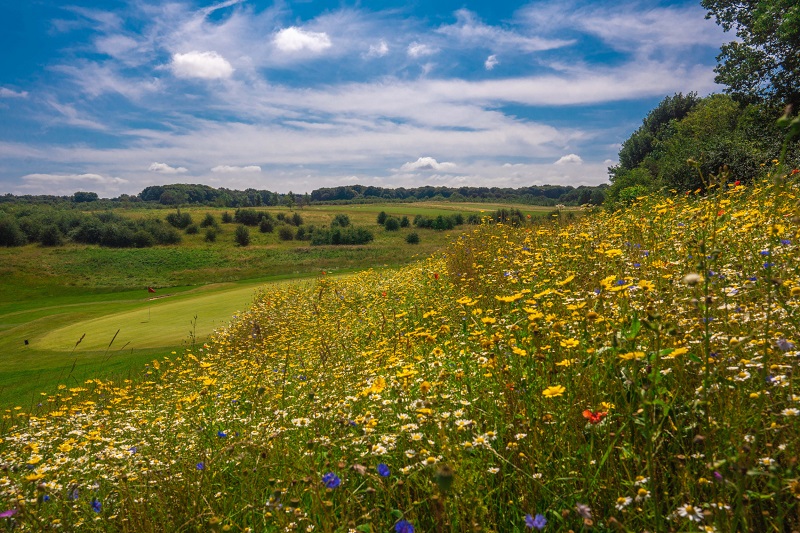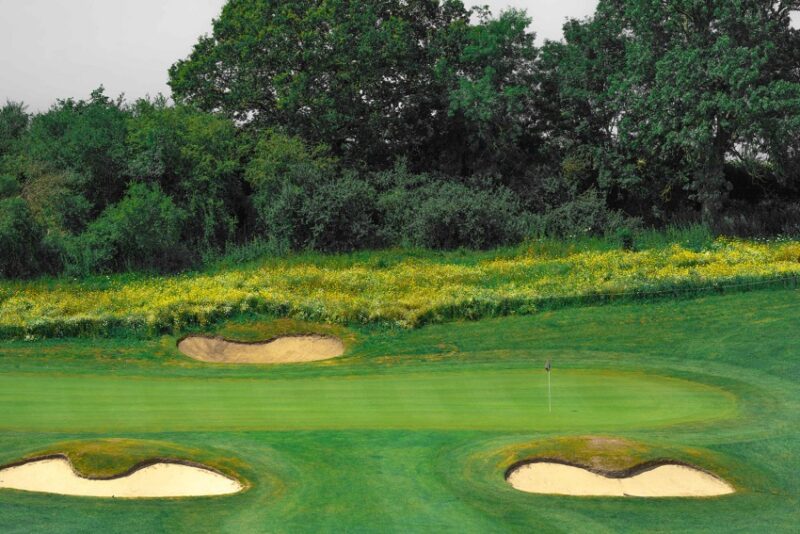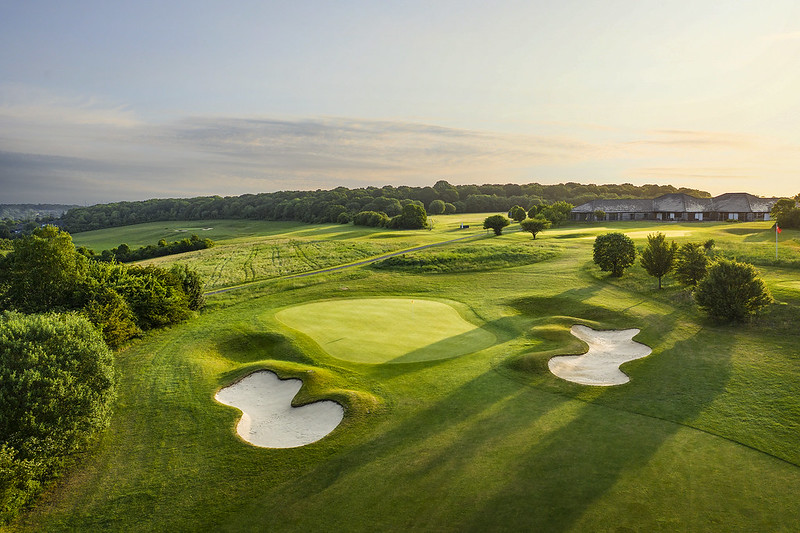The Royal Horticultural Society says the main problem affecting most pollinators is thought to be the loss of suitable habitat. Including forage, nesting, breeding sites, climate change, and pesticides.
Those golf clubs who are already paying attention to the above-mentioned phenomenon selected areas of their golf courses that are out of play. Just to give you a few ideas:
- Deep rough,
- Tee surrounds,
- Around the lakes and water features etc.
Participating in projects like Syngenta’s Operation Pollinator (500 clubs in the UK are already participating in this program designed by Sports Turf Research Institute) can improve your golf club’s reputation and its engagement with the local community (e.g. schools).
As we are striving to become more environmentally and health-conscious such a bold initiative can attract more people to your golf clubs.

Farleigh Golf Club – ‘Sustainability Project of The Year’ Award
Last year, I shared with you that the Farleigh Golf Club is participating in Syngenta’s Operation Pollinator program.
As part of the cooperation, Farleigh Golf Club planned to enhance its seventh hole on the red loop and third on the blue to provide more outstanding habitats and food sources for a range of native bees and other pollinating insects across its golf courses.
Initially planned to cover 0.5 hectares of land, the club is to add a minimum of 0.5 additional hectares in 2022 after the success of the original locations.
Operation Pollination has been truly embraced by all at Farleigh Golf Club, with the club and its members immensely proud to have seen such a vast increase in insect life since undertaking the project, notably in the form of the native bumblebees which have been in stark decline across the UK.

The Farleigh Golf Club has recently been awarded England Golf’s ‘Sustainability Project of The Year’ at the governing body’s annual celebration evening.
The 2022 ceremony was hosted virtually by England Golf CEO Jeremy Tomlinson and BBC Presenter Naga Munchetty and was broadcast live across YouTube on April 20th.
General Manager of Farleigh Golf Club, James Ibbetson commented
“Our Greenkeeping team, led by Kenny MacPhail are already beginning to work on the additional areas of wildflowers which we hope will continue to provide a safe haven for these insects, as well as a stunning visual backdrop for our members and guests.
We thank England Golf for the recognition, and would like to congratulate all the other winners from the evening.”
Investing in sustainability. It is not a whim!
A natural future step and investment could be for the Farleigh Golf Club to become a GEO Certified golf club. From now on golf clubs that are investing in sustainability should pay more attention to
- Safeguarding natural systems;
- Building sustainable supply chains;
- Enabling sustainable consumption & production (see zero waste);
- Applying technology to sustainability.

By investing in sustainability (see ESG: Environment, Society, Governance), your golf club will be judged not only on short-term financial gains but on a broader picture of what and how you contribute to society at large.
For this, reason I truly respect and appreciate Sentosa Golf Club‘s sustainability efforts and investments. They invested in
- Minimizing food waste;
- Water conservation: the club has become completely self-sufficient when it comes to irrigation.
- Sentosa Golf Club is planning to purchase certified carbon offsets through regional Forestry or Blue Carbon projects that will sequester atmospheric carbon while defending against deforestation and fostering the conservation of forests, mangroves, and reefs.
